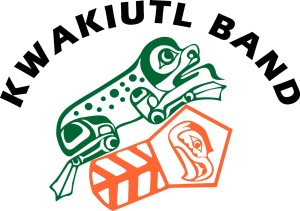First Nations in Northern Ontario look forward to negotiations to settle annuity case
First Nations in Northern Ontario have a won a lawsuit that will require federal and provincial governments to pay them higher annual annuities.
The Restoule v. Canada decision, delivered by Justice Patricia Hennessey last month, ruled that the provincial and federal governments are obligated to increase the annuity as outlined in the original Robinson-Huron Treaty signed in 1850.
The Crown left to its unfettered discretion in interpreting the treaty, has paid four dollars per year to treaty signatories for the past 143 years. This is the case despite an augmentation clause in the treaty that agrees to increase the annuity should government revenues increase.
The Robinson Huron Treaty Litigation Committee is pleased Canada and Ontario have indicated their desire to negotiate a resolution of the claim of the Robinson Huron Treaty to a fair share of the resource revenues within the Robinson-Huron Treaty territory. In her judgement Justice Hennessy wrote:
“I find that the Crown has a mandatory and reviewable obligation to increase the Treaties’ annuities when the economic circumstances warrant. The economic circumstances will trigger an increase to the annuities if the net Crown resource-based revenues permit the Crown to increase the annuities without incurring a loss. The principle of the honour of the Crown and the doctrine of fiduciary duty impose on the Crown the obligation to diligently implement the Treaties’ promise to achieve their purpose (i.e. of reflecting the value of the territories in the annuities) and other related justiciable duties.”
The federal government has decided not to appeal Justice Hennessy’s December 21st, 2018 decision on the Robinson Huron Treaty annuities case.
Ontario has indicated its desire to preserve the ability to appeal the decision of Justice Hennessy including the decision on costs. “The province has served us with their Notice to Appeal. We are very disappointed with this decision, however, we welcome their willingness to seek a settlement through negotiations,” said Wikwemikoong Chief Duke Peltier.
Batchewana First Nation Chief Dean Sayers remarked, “The Robinson-Huron leadership believe that Madam Justice Hennessy’s decision is a very solid and fair decision and identifies a clear path forward for renewal and reconciliation. We’re confident that Ontario and Canada will follow through on their legal obligation through a mediated negotiation process.”
The judgement does provide direction on the appropriate approach to achieve reconciliation:
“The Anishinaabe and the Crown now have an opportunity to determine what role those historic promises will play in shaping their modern treaty relationship. The pressures they faced in 1850 will continue to challenge them. However, in 1850 the Crown and the Anishinaabe shared a vision that the Anishinaabe and the settler society could continue to co-exist in a mutually respectful and beneficial relationship going into the future. Today, we arrive at that point in the relationship again. It is therefore incumbent on the parties to renew their treaty relationship now and in the future.”
Moreover, the judgement points out that the treaty relationship is long term and does reflect the perspectives and laws of the parties:
The Plaintiffs remind the court that the Anishinaabe Chiefs and leaders came to the Treaty Council to secure a treaty that was consistent with their long-term relationship with the Crown, which was characterized by the Anishinaabe principles of respect, reciprocity, responsibility, and renewal. From the Anishinaabe perspective, the central goal of the treaty was to renew their relationship with the Crown, which was grounded in the Covenant Chain alliance and visually represented on wampum belts with images of two figures holding hands as part of two links in a chain.
The parties will be meeting soon to discuss the way forward on negotiations. This will provide an opportunity to determine if Ontario prefers litigation to negotiations as the preferred method for achieving lasting reconciliation and, if Canada can advance rights recognition, respect and partnership with the Robinson-Huron First Nations in the existing treaty relationship.







Be the first to comment on "First Nations in Northern Ontario win historic treaty annuity lawsuit – look forward to negotiated settlement"